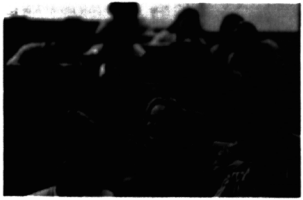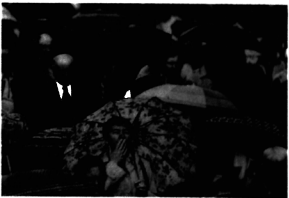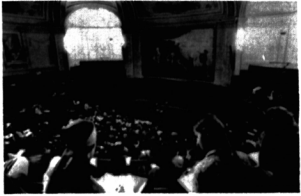7.2: Are you hungry? Do you have a headache?
- Page ID
- 142314
Questions et Réponses
A. Are you hungry? Do you have a headache?
- —Avez-vous faim?
- —Non, je n'ai pas faim. (J'ai bien mangé à midi.)
- —Oui, j'ai faim.
- —Vous avez mal à la téte?
- —Non, je n'ai pas mal à la téte.
- —Oui, j'ai mal à la tète.
- —Posez d'autres questions de ce genre à vos voisins.
Exercice II
As you see from No. 7 iust above, after working a short while with the sample questions, your instructor will have you ask questions of the same type of your classmates. Be prepared by making up some questions (and being ready with answers) using the following expressions. As usual, try to avoid sticking to just one pattern. Don't just ask about the person you're talking to; ask about other class members, or the person's friends or relatives. Make it more interesting by posing some questions about past conditions, for example: Est-ce que ton camarade de chambre avait sommeil ce matin?

| avoir soif | to be thirsty | avoir froid | to be cold |
| avoir tort | to be wrong | avoir besoin de | to need |
| avoir chaud | to be hot | avoir raison | to be right |
| avoir sommeil | to be sleepy |
Grammar Notes: You have now used a number of idiomatic expressions with the verb avoir. These expressions mainly refer to conditions; therefore, whenever the speaker is referring to the past, you'll most often find the imparfait rather than the passé composé. Except for reviewing the forms of avoir, and recalling the normal use of the imparfait for ongoing past conditions, there is little grammar to consider.
Exercice III
The pronoun on has a number of equivalents in English: "one" (rather formal), "people" (generic), and "you" and "they" (when they refer to some indefinite general group, not to a particular "you" or "them"). Complete the following statements about when people ("you," "they," "one") need something or are hot, cold, right, wrong, and so on.
Set a. Model: Quand on n'a pas bu, _________________________________
Quand on n'a pas bu, on a soif.
(Use an avoir construction in the blank.)
- Quand on n'a pas mangé, _________________________________
- Quand il neige, _________________________________
- Quand il y a du soleil, _________________________________
- Quand on est pauvre, _________________________________
- Quand on dit que deux plus deux font cinq, _________________________________


Set b. Model: On a besoin d'un parapluie quand _________________________________
On a besoin d'un parapluie quand il pleut.
(Use any appropriate construction in the blank, not necessarily with avoir.)
- On a soif quand _________________________________
- On a sommeil quand _________________________________
- On a besoin d'un pull quand _________________________________
- On a mal à la téte quand _________________________________
- On a faim quand _________________________________

